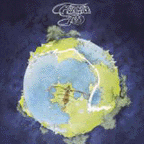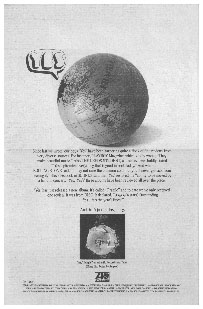- Home
- Introduction, Update Information, Links
- The Super Seventies "Classic 500"
- Readers' Favorite Seventies Albums
- Seventies Single Spotlight
- The Top 100 Seventies Singles
- Favorite Seventies Artists In The News
- Seventies Almanac - Year By Year
- Seventies Singles - Month By Month
- Seventies Albums - Month By Month
- Seventies Daily Music Chronicle
- Seventies Superstars In Their Own Words
- The Super Seventies Archives
- Seventies Trivia Quizzes & Games
- Seventies MIDI Jukebox
- The Super Seventies Bookstore
- The Super Seventies Photo Gallery
- Seventies' Greatest Album Covers
- Popular Seventies Movies & TV
- Seventies Celebrity Portrait Gallery
- Seventies Lyrics Hit Parade
- Top Seventies Artist Music Videos
- Seventies Usenet Music Forums
- Seventies Smiley Calendar
- EXTRA!
- Superseventies.com Facebook Page
- Superseventies.com Reddit Discussions
- The Super Seventies Blog
- Tweet The Seventies
- RockSite InfoBank
- Beatlefan Site
- Thanks For Your Support! / Top Sellers
- Search The Rock Site/ The Web

Fragile
Yes
Atlantic 7244
Released: January 1972
Chart Peak: #3
Weeks Charted: 46
Certified Gold: 3/10/73




 The sure and steady pace at which Yes has progressed through their four albums seems to suit them just fine, and in Fragile
the fruit is at last beginning to ripen.
The sure and steady pace at which Yes has progressed through their four albums seems to suit them just fine, and in Fragile
the fruit is at last beginning to ripen.
Some problems remain, however: They're good and they know it, so they tend to succumb to the show-off syndrome. Their music (notably "Cans and Brahms" and "We Have Heaven") often seems designed only to impress and tries too hard to call attention to itself. Is anyone really still excited by things like "Five tracks on this album are individual ideas, personally arranged and organized by the five members of the band..etc." They've got it in them to do a lot more than provide fodder for those strange people who get it off to visions of keyboard battles between Rick Wakeman and Keith Emerson. Then too, with the nimble Wakeman and his many instruments, a guitarist (Steve Howe) who can finger-pick like the devil and, apparently, a wealth of collective imagination, they could inject at least a tad more variety into their work. As it is, most of the songs sound like variations on one idea rather than distinct entities sharing a common style.
But make no mistake -- the Yes people have a lot to be excited over. Gorgeous melodies, intelligent, carefully crafted, constantly surprising arrangements, concise and energetic performances, cryptic but evocative lyrics -- when all these are present Yes is quite boggling and their potential seemingly unlimited.
As in the opening "Roundabout," marked by a thick, chugging texture which almost imperceptibly accumulates, during deceptively innocent little breaks and fills, a screaming, shattering intensity that builds and builds until suddenly everything drops away but Wakeman's liquid organ trills, some scattered guitar notes and Jon Anderson's pure, plaintive voice: "In and around the lake/Mountains come out of the sky and they/Stand there." It's a tour-de-force, a complete knockout, and perhaps the most quietly devastating moment to appear on a record in recent memory.
The heavily atmosphearic "South Side of the Sky" is also a grabber, a song that goes from full chorus and band (that's loud) to a segment that is nearly Oriental in its pristine simplicity -- just wandering piano, electronic swirlings and the whoosh of an icy wind. "Heart of the Sunrise" is the third extended cut, and it puts everything they've got into a wide-ranging and most impressive package which demonstrates that progressive (remember progressive rock?) doesn't mean sterile and that complex isn't the same thing as inaccessible.
When it's all working, the music made by Yes is what the best music always is, a powerful and emotional experience. It's probably the first music to come along since some of the Kinks' older stuff that actually brings the beginnings of tears to these jaded eyes of mine. Don't be it can't happen to you.
- Richard Cromelin, Rolling Stone, 3-16-72.
Bonus Reviews!
It would not be too great an assumption to say that Yes will be this years "supergroup." They are musical eclectics, taking that which is good from classical and fusing it to form a sound which is uniquely theirs. This album is vibrant, soothing, tumultuous, placid and instrumentally brilliant. Jon Anderson's plaintive vocals are deliciously ingratiating. Highlights are "Roundabout," "Heart of the Sunrise," and "Long Distant Run Around."
Further reading on
Super Seventies RockSite!:
Album Review:
Close To the Edge
Album Review:
Going For the One
Album Review:
Rick Wakeman - The Six
Wives of Henry VIII
Album Review:
Rick Wakeman - Journey To
The Centre Of The Earth
Album Review:
Rick Wakeman - The Myths
and Legends of King Arthur...
Jon Anderson & Chris Squire:
In Their Own Words
It was beginning to look as if Yes would never achieve the kind of popularity in America which is already theirs in England. But happily that situation has changed, and now this extremely tight quintet has really broken through on this side of the ocean.
Despite the title, there is nothing pecarious about the music contained here. This is granite-hard stuff, polished to the utmost and consistently innovative. Each of the Yes-men contributes a specific element to a total sound which swirls, dips and climbs with unflagging intensity. Take "Cans and Brahms" for example. There each musician takes a part normally assigned to an entire orchestra section, and the result is an exciting adaptation of an extract from Brahms' 4th Symphony in E Minor. If that sounds weighty, it's not.
At the other end of the spectrum and coming almost as a complete surprise in the midst of side two is "Mood For A Day," a delightful solo piece by guitarist Steve Howe. With its medieval flavor and elusive air, it is quietly assertive and as involving as the more explosive tracks -- one of which comes directly on its heels. The group methodically structures their instrumental layers -- Chris Squire's bass, Bill Bruford's percussion, Howe's guitar and Rick Wakeman's keyboards -- topping them off with the vocals of Jon Anderson. It can truly be said that Jon uses his voice like a musical instrument... but more than that, like an electronic instrument.
All of the Yes albums are of high quality, but Fragile is unquestionably their most cohesive and mettlesome undertaking ever.
- Ed Kelleher, Circus, 4-72.
I certainly prefer Yes's rock-classical synthesis -- in which tricky intros, swooping dynamics, and intense textures are integrated into a self-sustaining (and -propelling) electric framework -- to ELP's flashy chopsmanship. "Round-About" is a triumph right down to its nature-mystic lyric, the rhythm players each contribute a viable composition, Steve Howe remains a marvel, and even the rearranged Brahms from new keyboard player Rick Wakeman is tolerable. But isn't there supposed to be more to art than great contrivance? B
- Robert Christgau, Christgau's Record Guide, 1981.
Fragile turned out to be part group effort and part showcase for the individual talents in the band. Rick Wakeman contributes a readily avoidable arrangement of a Brahms symphony, Jon Anderson a densely-recorded multi-track chant. Drummer Bill Bruford shows off his ability to drum in compound time (which sure confused rock enthusiasts at the time although lasting barely 30 seconds). Slightly dull, fat sound.
- David Prakel, Rock 'n' Roll on Compact Disc, 1987.
The breakthrough album for the band, in which the science-fiction and fantasy elements of the songs become dominant and the addition of Rick Wakeman on organ added a larger-than-life element to the group's sound. Ironically, the album was a patchwork job, hastily assembled to help cover the cost of Wakeman's expanded array of instruments, but the short form of "Roundabout" clicked on AM radio, album buyers liked the long version, plus the rest of the material they found, and the band was made. * * * * *
- Bruce Eder, The All-Music Guide to Rock, 1995.
Despite the ominous import of their excesses, Fragile and Close To The Edge show Yes at a creative and commercial peak, and both include some of their most majestically beautiful work. * * * 1/2
- Simon Glickman, Musichound Rock: The Essential Album Guide, 1996.
On this classically influenced theater-of-the-mind tour de force, this talented bunch boldly ventured where no band had gone before. They created the art-rock gold standard, a new progressive sound that seamlessly integrated lush orchestral arrangements with the then-latest, greatest electronic music and broke the mold. From the ethereal voice of Jon Anderson to Rick Wakeman's keyboards, Yes-men (and women) insist it's an aural wonder. * * * *
- Zagat Survey Music Guide - 1,000 Top Albums of All Time, 2003.
After touring April to December 1971 with the likes of Iron Butterfly, Jon Anderson and Chris Squire sought to develop the band's sound with newfangled synthesizers. Tony Kaye's preference for Hammonds (and arguments with roommate Steve Howe) led to his exit in August, by which time Wakeman had left The Strawbs, bringing Yes a whole new level of virtuosity and showmanship. Drummer Bill Bruford was bewildered by Anderson and Squire's drive to be the world's best band, but sessions above a brothel in London's Shepherds Market were immediately productive (producing four group efforts to complement five solo ones).
Although uncredited on the sleeve due to publishing wrangles, Wakeman contributed on the first day to the sweet surging, rifled keys and guitar of the ecstatic "Roundabout," and the raging-cum-dreamy, soaring-vocal "Heart Of The Sunrise." The visceral jazz-psych storm of "South Side Of the Sky" is another epic story-song that emerged during five weeks of rehearsals prior to September at Advision, where Yes played at deafening volume. Engineer Eddie Offord edited hours of recording for a few bars, with fans allowed in 20 at a time to watch. Anderson's lyrical mysticism is to the fore on the chanting "We Have Heaven" and Roger Dean's sleeve artwork encapsulates the fractured world at the heart of the album's concept. Critically lauded and Top Ten in the UK and the United States, it signaled, as Jon said, "Yes are a people's band" -- albeit with a love of the music at its most complex.
- Tim Jones, 1001 Albums You Must Hear Before You Die, 2005.
![]() Reader's Comments
Reader's Comments
No comments so far, be the first to comment .
![]() Main Page
| The Classic 500
| Readers' Favorites
| Other Seventies Discs
| Search The RockSite/The Web
Main Page
| The Classic 500
| Readers' Favorites
| Other Seventies Discs
| Search The RockSite/The Web




